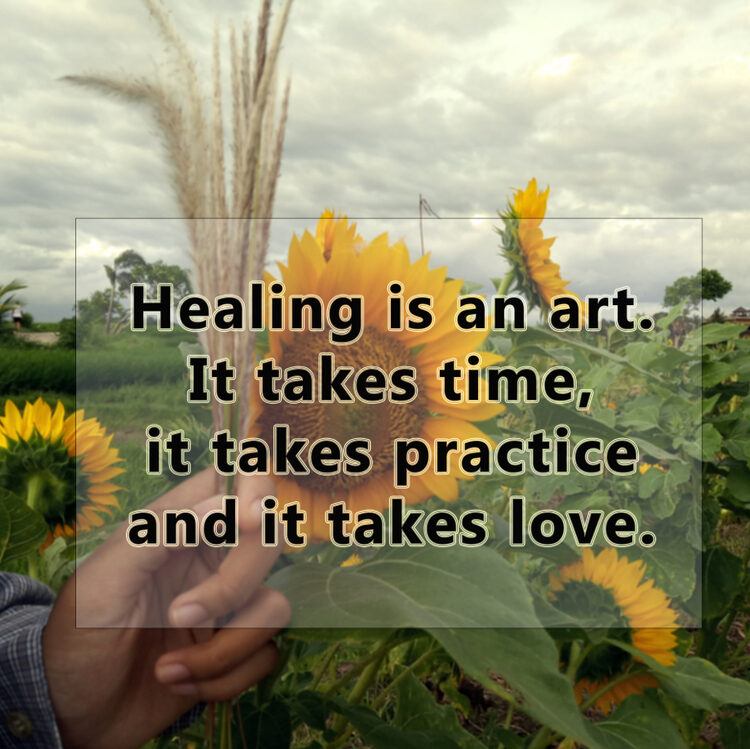What does it really mean to have gratitude?
Gratitude is a state of being thankful and appreciative of the good things in life. It is an attitude that acknowledges the positive aspects of life and focuses on what is good rather than what is lacking. Practicing gratitude is an essential component of a happy and fulfilling life. In this article, we will explore the definition of gratitude and its importance in our daily lives.
Gratitude can be defined as a feeling of thankfulness and appreciation for the good things in life. It encompasses a wide range of positive emotions such as joy, contentment, and satisfaction. Gratitude can be directed towards people, events, or even inanimate objects that bring us happiness and fulfillment. It is a mindset that allows us to focus on the positive aspects of our lives and appreciate the blessings that we have.
Why is it important to incorporate it into our daily lives?
Gratitude has numerous benefits for our mental and emotional well-being. It helps us to cultivate positive emotions and focusing on the good things in our lives can reduce stress, and anxiety, and improve our overall sense of well-being. Gratitude also promotes better relationships with others by fostering feelings of goodwill and appreciation. Practicing gratitude is also linked to improved physical health, specifically by reducing inflammation and promoting better sleep. In short, practicing gratitude is an essential component of a healthy and fulfilling life.
The Benefits
1. Improved Mental Health
Gratitude has been shown to have a positive impact on mental health. Studies have found that practicing gratitude can lead to a reduction in symptoms of depression and anxiety. By focusing on the positive aspects of one’s life, individuals may be less likely to dwell on negative thoughts and emotions, leading to an overall improvement in their mental well-being.
2. Increased Happiness
Gratitude has also been linked to increased levels of happiness. When individuals express gratitude, whether through journaling, writing letters of gratitude, or simply expressing thanks, they tend to feel happier and more content with their lives. This is because focusing on the good in one’s life can lead to a more positive outlook and a greater sense of satisfaction.
3. Better Relationships
Gratitude can also improve relationships with others. When individuals express gratitude towards their partners, friends, or family members, it can help to strengthen those relationships. Gratitude can also lead to increased feelings of closeness and connection, as individuals feel appreciated and valued by those around them.
4. Enhanced Empathy
Finally, practicing gratitude can enhance empathy. When individuals focus on the positive things in their lives and express gratitude for them, they may be more likely to notice the good in others as well. This can lead to greater empathy and understanding towards those around them, as individuals become more attuned to the positive qualities in others.
Different Strategies for Increasing Gratitude Practice
Gratitude Journaling: One of the best ways to increase gratitude is to keep a gratitude journal. Every day, take a few minutes to write down things that you are grateful for. This may include people, experiences, or even material possessions. The act of writing down these things helps to focus your mind on the positive aspects of your life and can lead to increased feelings of happiness and contentment. It also gets you in the habit of noticing the things that are going well in your life as opposed to focusing on the negatives.
Expressing Gratitude to Others: Another way to increase gratitude is to express gratitude to others. Take a moment to thank someone for something they have done for you. This can be as simple as thanking your spouse for making dinner or thanking a colleague for their help on a project. Expressing gratitude not only helps to increase your own feelings of gratitude, but it can also help to strengthen relationships. You can also choose to write a gratitude letter to someone who’s had a significant impact on your life and send it to them to show thanks.
Practicing Mindfulness: Mindfulness is the practice of being fully present in the moment. By taking the time to focus on your breath, your thoughts, and your surroundings, you can increase your awareness of the good things in your life. Mindfulness can also help you to let go of negative thoughts and emotions, which can contribute to increased feelings of gratitude.
Going For a Gratitude Walk Or Engaging In Something That Brings You Joy: This may include spending time with loved ones, pursuing hobbies or interests that you enjoy, or simply taking time to appreciate the beauty of nature. By focusing on these positive aspects, you can shift your perspective and increase your overall sense of gratitude.
Challenges in Practicing Gratitude
Negativity Bias
One of the biggest challenges in practicing gratitude is the negativity bias that humans have. This bias is the tendency to focus on negative experiences and overlook positive ones. This makes it difficult for people to see the good things in their lives and be grateful for them. To overcome this bias, it is important to intentionally focus on positive experiences and actively look for things to be grateful for. Over time, this can create new neural pathways so you are less prone to go to the negative.
Lack of Time
Another challenge in practicing gratitude is the lack of time. People lead busy lives, and it can be difficult to take time out of the day to reflect on the good things in life. However, studies have shown that even a few minutes of gratitude practice each day can have significant benefits. To overcome this challenge, people can try to incorporate a gratitude practice into their daily routine, such as by writing in a gratitude journal before bed or taking a few moments during a break to reflect on what they are grateful for. In today’s society, finding an application on your phone or carrying around a personal notebook are beneficial resources to have handy.
Difficulty in Finding Things to Be Grateful For
Finally, some people may find it difficult to find things to be grateful for, especially during challenging times. However, even in difficult situations, there are often small things to be grateful for, such as the support of friends and family or a beautiful sunset. To overcome this challenge, people can try to shift their perspective and look for the positive aspects of a situation, rather than focusing on the negative. With practice, this can become a habit and lead to a more grateful outlook on life.
Evergreen’s Tips For Overcoming These Challenges
1. Reframing negative thoughts
One way to overcome challenges is by reframing negative thoughts. This means shifting our perspective from one that is negative to one that is positive. For example, instead of thinking “I can’t do this,” we can reframe it to “I haven’t figured it out yet, but I will.” By reframing negative thoughts, we can reduce stress and anxiety, and increase our resilience. Be careful not to go 0-100 here (i.e., going from “I can’t do this” to “I can do this”). Make sure you are reframing negative thoughts realistically and with manageable expectations.
2. Making gratitude a habit
By focusing on the good things, we can shift our attention away from the challenges we are facing and feel more positive and optimistic. To make gratitude a habit, we can start by writing down three things we are grateful for every day, or by taking a few minutes each day to reflect on the good things in our lives.
3. Prioritizing gratitude in daily routine and making it a habit
Finally, to overcome challenges, we need to prioritize gratitude in our daily routine. This means making time for it and treating it as an important part of our day. We can do this by setting aside a few minutes each morning or evening to focus on gratitude, or by incorporating it into our daily meditation or mindfulness practice. By making gratitude a priority, we can reap its benefits and overcome challenges with a more positive and resilient mindset.
By focusing on the good things, we can shift our attention away from the challenges we are facing and feel more positive and optimistic. To make gratitude a habit, we can start by writing down three things we are grateful for every day, or by taking a few minutes each day to reflect on the good things in our lives.
To Conclude…
In conclusion, practicing gratitude has numerous benefits, including improved physical health, better mental health, and stronger relationships. Some ways to increase gratitude include keeping a gratitude journal, expressing gratitude to others, and focusing on the present moment. By making gratitude a regular practice, individuals can experience these benefits and enhance their overall well-being.
It is important to make gratitude a regular part of your daily life. Whether it is through starting each day with a gratitude practice, expressing gratitude to loved ones, or reflecting on the good things that happened during the day, incorporating gratitude into daily routines can lead to a more positive outlook on life. By making a conscious effort to cultivate gratitude, individuals can experience the many benefits that come with it. As such, it is encouraged to make gratitude a regular practice for a happier and healthier life.
If you or someone you know is looking to begin online therapy and you reside in Ontario, Canada, please do not hesitate to contact us at admin@evergreentherapeutics.ca. We offer a team of psychotherapists who treat a variety of mental health concerns with individuals, couples, and families. Visit our website www.evergreentherapeutics.ca for more information.





